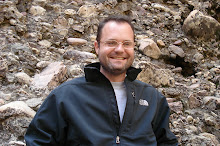
By Dan LeMaire, Assistant Field Director
“…Men of the modern world exist in continual and flagrant antagonism between their consciences and their way of life”. I have recently been swept into a great internal adventure as I study the lives of non-violent social reformers. It came as a surprise to me that reformers of the 20th century such as Ghandi and Martin Luther King Jr., as well as many others, have a common history in their studies of Leo Tolstoy. Tolstoy is a novelist, philosopher and educational reformer who lived and worked in the late 1800s and it was he who penned the quote above. It was Tolstoy’s postulation that we live in a constant tension between what we know we should be, what we think we can be, and what we think we are.
Many of the friends I meet at Aspiro, in the form of peer guides and in the form of students arrive in this state.
In so many ways, I feel closer to them for it… because it is a way of being that I share. I do not think that living in this state indicates any sort of moral failure, at least not more than anyone else. The only way to truly be exactly what we think we should be at all times is if we are perfect. However, I have seen unhealthy and healthy ways of resolving this tension. It would stand to reason that if we feel a sense that we ought to be something better than what we are, that we ought to be more fit, more kind, more generous, more hard-working, etc., that this tension would make us uncomfortable. This discomfort can motivate us to excel and to become better, but it does not always. There are easier ways to resolve this tension. If we seek to close the gap between ‘how good’ we think we are, and ‘how good’ we think we ought to be, it is very difficult to simply be better. It is much easier to convince ourselves that the concept of ‘how good’ we ought to be is simply an illusion. If our moral sense is an illusion, then it absolves us of our responsibility to work toward it.
If we cannot bring our behavior up to the standard of our morals, then we will bring our morals down to the standard of our behavior. It can sometimes take years of dialogue with ourselves and crafty manipulation to convince ourselves that we need not be as great as we think we ought to be. This is where our third category comes from. It is the category of self-efficacy, or 'what we think we can be'. Before attempting any task of any kind, our minds will always go through a process of deciding if the task is worth the effort. If there is a high likelihood of success, and relatively small cost, we are likely to attempt the task. If there is either too high of a cost, or simply no belief that we can accomplish the task, we are unlikely to attempt the task.
Being an accomplished skier, I enjoy skiing very difficult and steep backcountry slopes. I must minimize the risks of avalanche, tumbles, and equipment failure in order to do this successfully. I will carefully measure snow stability across the span of months, carefully tune and prepare my equipment, choose my team or partner carefully, and spend hours picking my specific path down the mountain and committing it to memory.
Because I have done all these things so many times, and have been successful each time, I have little hesitation when I am standing on top of the slope, looking down, preparing to drop in. My wife, on the other hand, has skied only a few hours in her life. Simply standing on her skis on the gentlest of slopes without me nearby to help can immobilize her in terror. If she were to stand at the top of the same mountain that I was standing on, she would simply be unable to progress any further. She would be unwilling to accept the risk of failure. My self-efficacy is much stronger than her self-efficacy as it regards backcountry skiing.
Whether the task is skiing, homework, business, making friends, quitting smoking, or interacting positively with parents, we will only choose to accept the challenge and engage in the task if we believe we can be successful. If the cost is too high for us, we will simply choose to believe that we cannot possibly accomplish the task. There is a constant tension between what we think we ought to be, what we think we can be, and what we think we are. An unhealthy way of resolving this tension is to simply lower the standards or 'what we think we ought to be', or to lower the standards of 'what we think we can be', to match 'what we think we are'.
I have heard students at Aspiro tell me that they simply cannot get along with their parents, that they would rather live on the streets. Because they do not believe in the possibility of success, they choose to believe that the only option they have left is to live on the streets, to give up.
There are more academic ways of describing these conditions. 'What we think we ought to be' is called morality, spirituality, or ambition. 'What we think we can be' is called our self-efficacy. 'What we think we are' is known as our self-concept. Thinking errors in each of these areas are addressed at Aspiro, and I believe this is one of our many keys to success.
When a student lacks ambition, or ignores moral impulses they have, there can be a lot of shame and sadness associated with it. One can begin to look pretty cold, hard, and cruel pretty quickly in this state. Bridges are often burned in the family and and it is hard even to have the motivation to like each other or continue trying.
Yet, the environment can become so surreal, so magical, so difficult sometimes at Aspiro, that all the rules change. Things that seemed distasteful before now seem desirable. Relationships that seemed lost begin to feel missed. We journal, we talk, we have community, and we share great epic adventures together until suddenly we find ourselves wanting to be better than we ever have before. Where before we felt no desire to overcome, to be better, to do whatever it takes to love, accomplish, and to grow, suddenly we begin to Aspire.
This is what it means to experience Aspiro.
When a student lacks confidence, there is a deep sadness and feelings of failure associated with it.
Sometimes it feels like one can never be good enough. Often because of learning disabilities, difficult family situations, loss, or negative peer groups, a student comes to us feeling as if they have never succeeded at anything. Sometimes they feel as if they never can succeed, that they are born destined to be unhappy and destined to feel distant and left out of their families and communities. It is difficult to feel this way for long at Aspiro. The community is supportive and goes to great lengths to notice and reward every success. We are confronted with challenges such as rock climbing, river rafting, skiing, and rappelling that change us in deep and powerful ways. Once we have completed that one difficult climb, that one scary rappel, that one roaring rapid, it is hard to ignore the feeling of power and success that comes as a result of that. It is hard to continue believing that we are destined to be unhappy or destined to be unsuccessful. Where before we had no confidence, no belief that we could accomplish great things, suddenly we begin to aspire. This is what it means to experience Aspiro.
When a student sees themselves different than they truly are, when they make choices that reflect a lack of understanding of the world around them, or lack of empathy, there can be enormous frustration associated with it. It can feel like they are trying very hard but going nowhere. Many of the tactics they try do not turn out as they expect. Sometimes a student will perceive themselves as less valuable, less loved, less important than they truly are. Other times they will see themselves as the center of attention, as the only one of value in the room, the only one worthy of notice. At Aspiro we have a culture of unconditional love that trickles from staff to students and their peers. But this unconditional love does not mean unconditional attention.
Our students learn to understand that we love them deeply regardless of their past and are only interested in their success and growth. However, they are not the center of the universe and others have needs as relevant, real, and pressing as their own. When we can feel unconditionally loved, but redirected to focus on serving others around us, it is my belief that we are freed then to act in love and to see ourselves as we really are. Where before we had a misdirected sense of how to get the attention we need, or an underestimated sense of value about ourselves, we begin to grow a new respect for our power, our influence, and our ability to sacrifice for others. We learn that we are capable of so much more, capable of changing the world, capable of growing our families and communities. We learn to aspire. This is the Aspiro experience.
Our students learn to understand that we love them deeply regardless of their past and are only interested in their success and growth. However, they are not the center of the universe and others have needs as relevant, real, and pressing as their own. When we can feel unconditionally loved, but redirected to focus on serving others around us, it is my belief that we are freed then to act in love and to see ourselves as we really are. Where before we had a misdirected sense of how to get the attention we need, or an underestimated sense of value about ourselves, we begin to grow a new respect for our power, our influence, and our ability to sacrifice for others. We learn that we are capable of so much more, capable of changing the world, capable of growing our families and communities. We learn to aspire. This is the Aspiro experience.









No comments:
Post a Comment